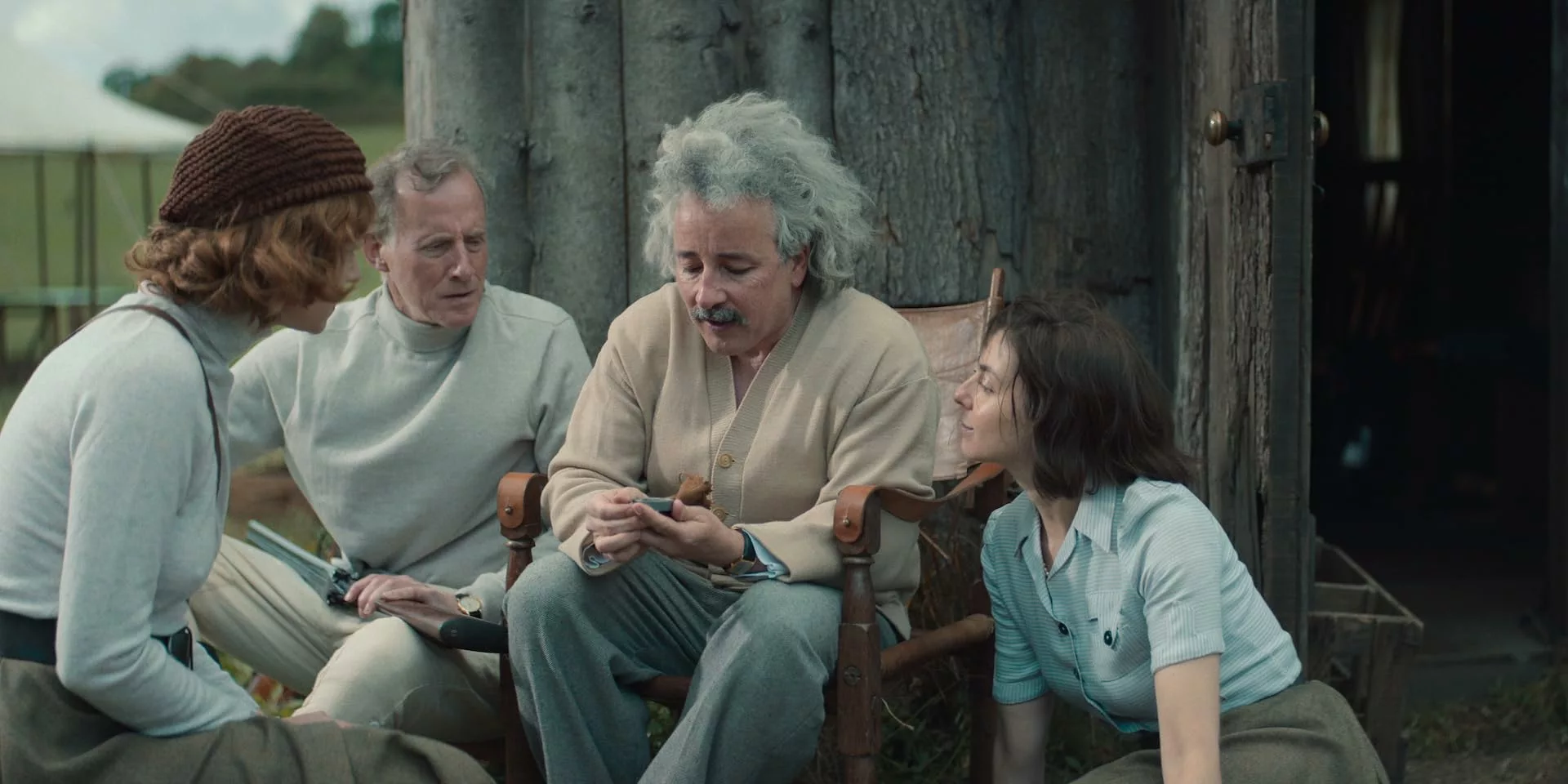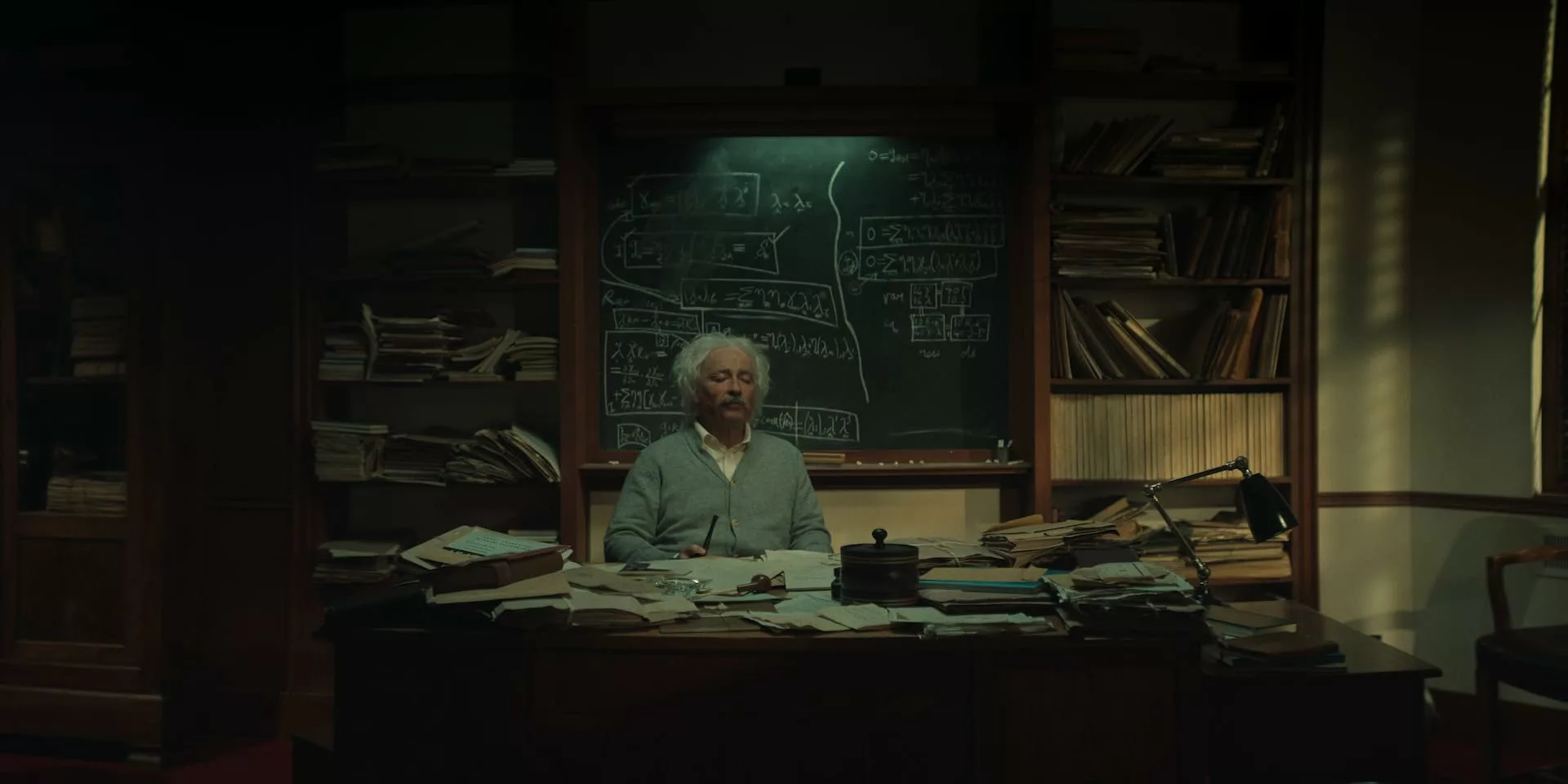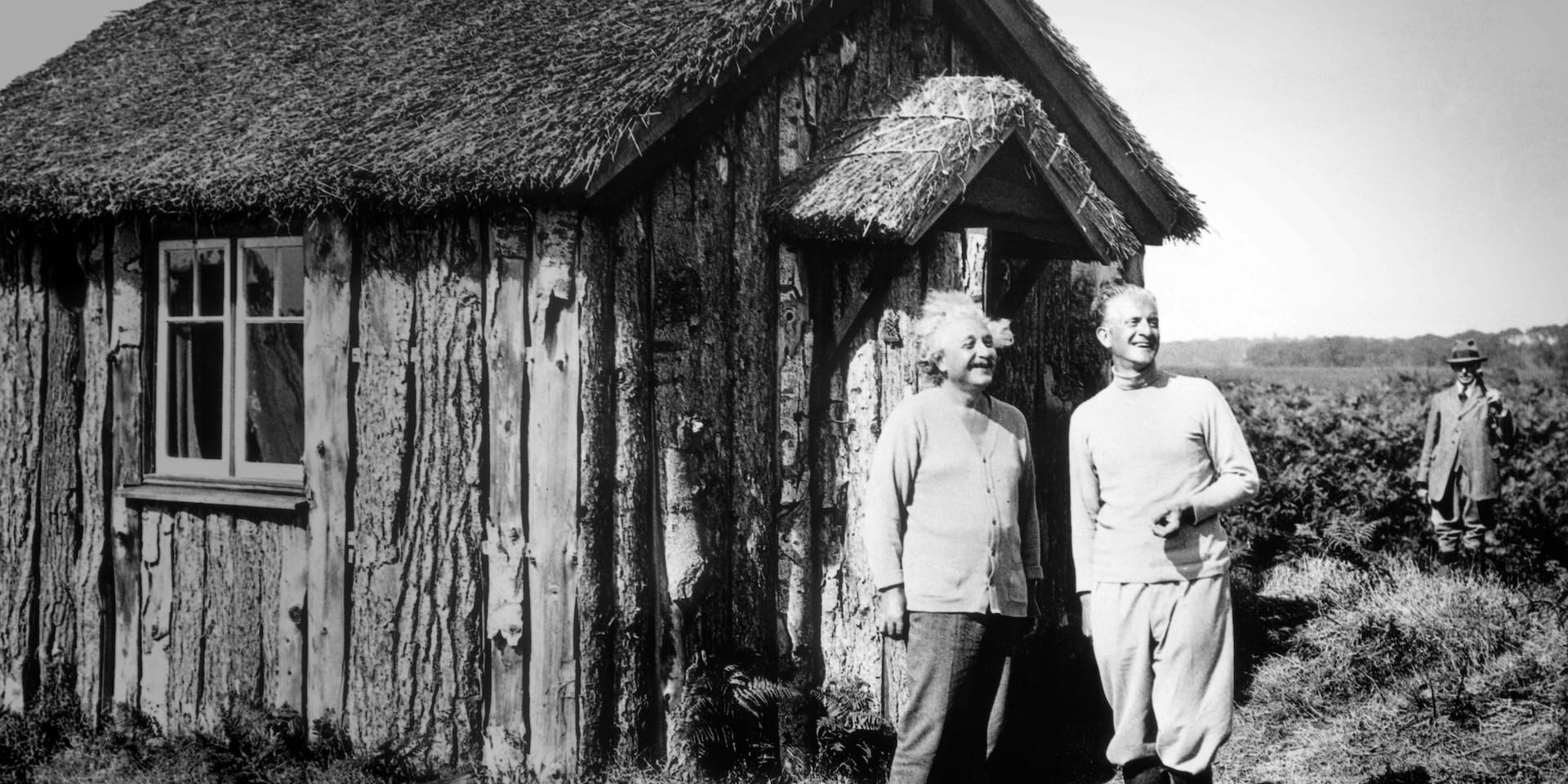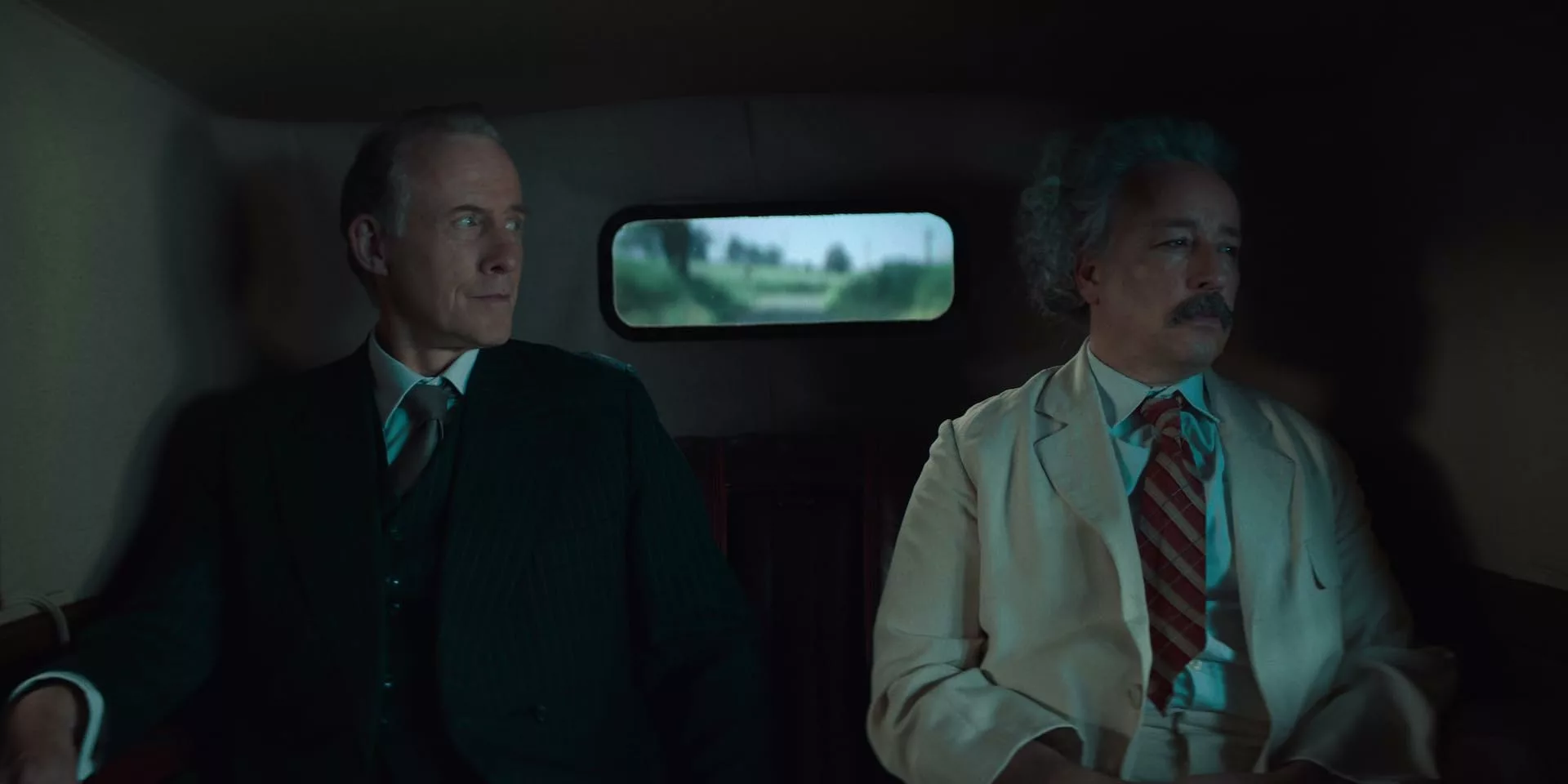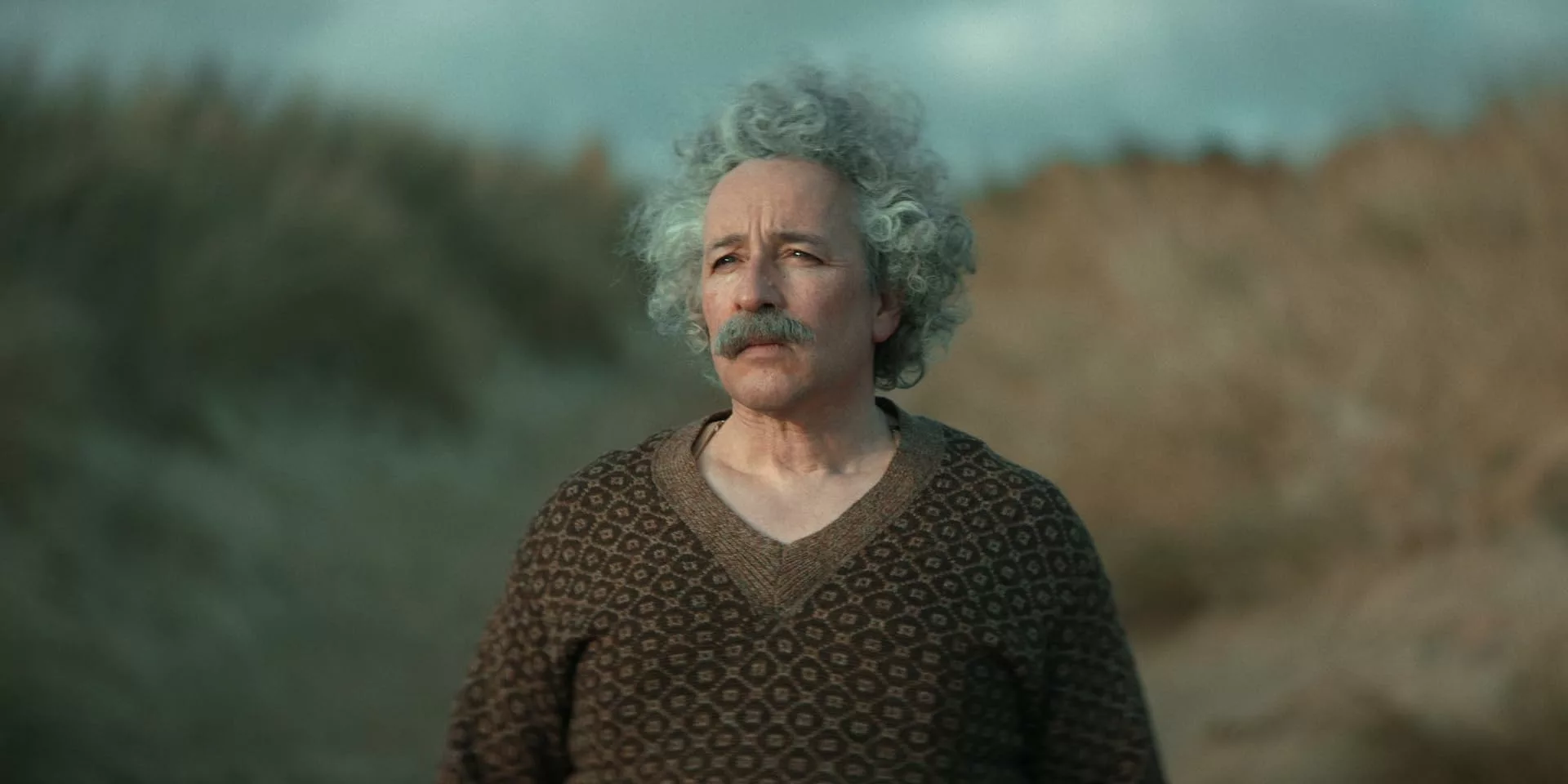Albert Einstein, father of modern physics, grappled profoundly with the moral implications of his work enabling the atomic bomb. This legendary scientist comes to life in the new docudrama Einstein and the Bomb, a cinematic companion to the recent box office smash Oppenheimer. Blending archival footage with dramatic recreations, this Netflix production traces Einstein’s exile from Nazi Germany to America’s race to build the ultimate weapon.
While light on hard science, the film provides penetrating insight into Einstein’s convictions. We witness his militant pacifism give way to nuanced realism in the face of rising fascism. Though absent from the Manhattan Project, Einstein set events in motion through his groundbreaking theory of relativity. The bomb weighed heavily on his conscience for the rest of his days. “The war is won, the peace is not,” he laments.
This introspective portrait captures Einstein’s profound ambivalence over unlocking the power within the atom. The creators take some liberties with chronology yet stay true to the spirit of the man. Prepare to discover unexpected dimensions behind the mythic genius. Einstein and the Bomb renders a complex chapter of history on an intimately human scale.
Blending Truth and Drama
Einstein and the Bomb combines documentary footage with dramatized scenes to recreate pivotal moments. Many biopics invent dialogue to speculate on private conversations. Refreshingly, the filmmakers restrict all of Einstein’s scripted lines to his actual writings and speeches. Leading man Aidan McArdle embodies a fiercely principled, yet anxious, Einstein confronting tyranny in his German homeland.
Rather than a strict timeline, the story bounces across Einstein’s life associatively. We witness pre-war warnings give way to relief at a countryside refuge, curdling to postwar regret over unleashing nuclear peril. This time-hopping collage aims more to capture Einstein’s mindset than recount events blow-by-blow.
The newsreel clips contextualize the stakes, while McArdle humanizes the legend behind the icy shock of white hair. The film toggles between sweeping and intimate perspectives, external events and inner turmoil. It substitutes Hollywood polish for integrity to historical sources. This daring docudrama formula may confuse viewers craving cleanly chronological storytelling. Yet it accessibly renders the 20th century’s most epochal figure.
McArdle Captures Einstein’s Essence
In the central dramatic role, Aidan McArdle admirably captures Einstein’s trademark blend of humanism and piercing intellect. With frizzy hair and mustache, he looks the part. His acting conveys warmth, wit and gravitas, bringing this icon down to earth. We believe his agony over wielding scientific influence for destructive ends.
McArdle slips in and out of a German accent. At times he seems to channel Einstein’s unique cadence and phrasing. Other lines sound more generically foreign. This uneven accent pivots from distracting to contributing to the performance’s raw authenticity. Ultimately McArdle wins us over through his emotional connection to the material.
The film fluidly merges recreated scenes with actual newsreels and speeches. Real and performed blend seamlessly, thanks to McArdle’s skill and the script’s faithfulness to Einstein’s perspectives. The documentary footage provides essential context, while McArdle’s Einstein grounds it in poignant humanity. Their interplay makes palpable the tension between scientific abstraction and human costs. This innovative docudrama approach brings refreshing resonance to oft-told history.
Navigating a Jumbled Timeline
One barrier to accessibility comes from the nonlinear storytelling. The film ping-pongs across decades in Einstein’s adult life, often within a single sequence. While likely aiming to depict an elastic relativity of time, this collage editing can prove chronologically confusing. It takes concerted mental effort to track when events unfold versus when we witness them on screen.
More fundamentally, the title promises a direct focus on Einstein’s connection to the dreaded bomb. Yet the atomic weapons that capped World War II only enter the story halfway through the scant 76-minute runtime. Up till then we delve deeply into Einstein’s pre-war activism against the Nazi party’s rise. This establishes essential biographical context, but slightly misrepresents the film’s ultimate priorities.
Key anticipated figures like J. Robert Oppenheimer fail to appear, though the two scientists fatefully crossed paths. Perhaps condensed length left no screen time to explore their dynamic. Regardless, the film misses chances to spotlight Einstein’s mixed feelings upon seeing his theoretical physics weaponized. More minutes might have better tracked this progression from breakthroughs in relativity to reluctant calls for US nuclear armament to profound postwar guilt over consequences.
Despite these pacing quirks, the film retains power through honing intimately in on Einstein’s inner experience. We witness him gainsay violence through pacifism yet pragmatically confront evil regimes, guided by humanist morality above all. If only we could sit down and pick Einstein’s spectacular brain about what today’s new awe-inspiring inventions might enable generations from now. This imperfect docudrama offers but a tantalizing portal into the past.
Compelling Visuals, Occasional Hiccups
The newly filmed dramatic scenes boast striking cinematography and convincing period details. We feel transported back to Einstein’s era through picturesque English manor interiors and countryside vistas. Crisp newsreel footage seamlessly meshes, underscoring the abiding impact of Einstein’s saga.
At their best, these recreated interludes movingly envision a lonely genius pondering his share of blame for spurring weapons of unfathomable scale. Yet some overly earnest lines ring hollow, likely more the fault of condensing complex ideas than acting talent. One female bodyguard assigned to protect Einstein quips, “When did you start thinking about time and space and all these things, professor?” – a credibility-straining oversimplification of sophisticated concepts.
Such intermittent cheesy moments lend an impressionistic, rather than strictly factual, aura. This aligns with the film’s mission to access emotional truth over academic accuracy. We must remember that, like Einstein’s own fluctuating accent, no movie can perfectly replicate reality. Through dynamic camerawork and editing, Einstein and the Bomb transports us into subjectively experiencing a chapter that drastically reshaped human potential for both creativity and destruction.
Wrestling with Conscience
At its core, Einstein and the Bomb explores profound questions of ethics and accountability. Einstein passionately crusaded for peace yet pragmatically accepted armed resistance to totalitarian aggression. His militant pacifism understood diplomacy’s limits and refused to rule out confrontation as an absolute last resort.
When the Nazis’ genocidal intentions became undeniable, Einstein took the rare step of speaking publicly in political opposition. He called upon the international community to intervene, by force if necessary, to depose Hitler’s regime. Here was a principled progressive advocating for war – evidence of Einstein’s philosophical depth. Though Adolf Eichmann offered to spare Einstein’s life in exchange for silence, the courageous physicist refused complicity through inaction.
Yet afterwards Einstein agonized over the unintended fallout from his equations. His groundbreaking conception of relativity enabled the atomic bomb’s development. Though peripheral to the Manhattan Project, Einstein lit the long fuse towards those apocalyptic Mushroom clouds. This film gives insight into survivor’s guilt from one history’s most expansive minds.
Einstein exemplified harnessing intellectual gifts for humanity’s benefit, not willful ignorance of their application. His life story compels scientists in every field to take ethical responsibility for advancing understanding. If only today’s pioneers heed his hard-won wisdom in guiding innovation’s double-edged potential.
Imperfect yet Illuminating
For all its flaws, Einstein and the Bomb succeeds in humanizing one of history’s most revered intellects. We relate to Einstein’s angst over persecution and his collateral responsibility for devastation. Leading man Aidan McArdle movingly channels this humanitarian scientific pillar’s sacrifices and regrets.
The film oversells its direct focus on the atomic bomb yet still deeply explores Einstein’s character. Production values impress more through integrity than slick packaging. Choosing to literally voice Einstein’s own words lends credibility lacking in many biopics. This unique approach has its limitations but feels fresh.
One walks away wishing the story delved further into Einstein’s dynamic with Oppenheimer and the Manhattan Project. Their interplay remains a prime missed opportunity. Greater detail on how Einstein’s disbelief at his theory enabling doomsday devices would strengthen the portrayal. More running time could remedy these deficiencies.
Nonetheless, Einstein and the Bomb succeeds on its own terms as a passion project about conscience colliding with history. It makes for an illuminating, if not definitive, companion to grander big-screen depictions of the Dawn of the Atomic Age. Casual viewers and relativity buffs alike should appreciate this accessibly human rendition of Einstein’s inner landscape. Despite imperfections, the film insightfully trains focus on his ethical legacy for science walking an ever finer line between creative and destructive applications.
The Review
Einstein and the Bomb
Einstein and the Bomb falls short of fully delivering on its title's premise, yet still rewards viewers with an intimate character study of its legendary subject. By creatively blending documentary and dramatic recreation, the film provides a refreshingly humanized angle on Einstein's epochal influence and inner turmoil. Aidan McArdle turns in a sympathetic performance that helps offset narrative deficiencies stemming from condensed runtime. Flaws aside, it makes for an illuminating companion piece to grander cinematic depictions, appealing more to the heart than the intellect.
PROS
- Illuminates little-known facets of Einstein's life
- Aidan McArdle portrays Einstein with nuance and depth
- Docudrama format offers refreshing authenticity
- Riveting exploration of Einstein's moral dilemma
- Penetrating insight into Einstein's philosophical convictions
- Effective blend of archival footage with dramatic recreations
CONS
- Timeline is confusingly non-linear
- Misrepresents direct focus on the atomic bomb
- Several key figures like Oppenheimer omitted
- Hampered by overly condensed 76-minute runtime
- Periodically hokey dramatic scenes and dialogue









































